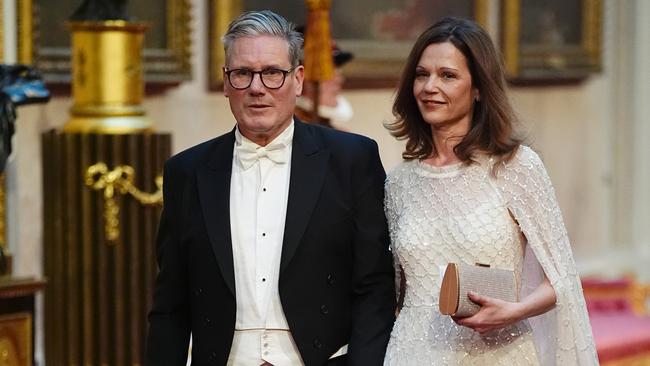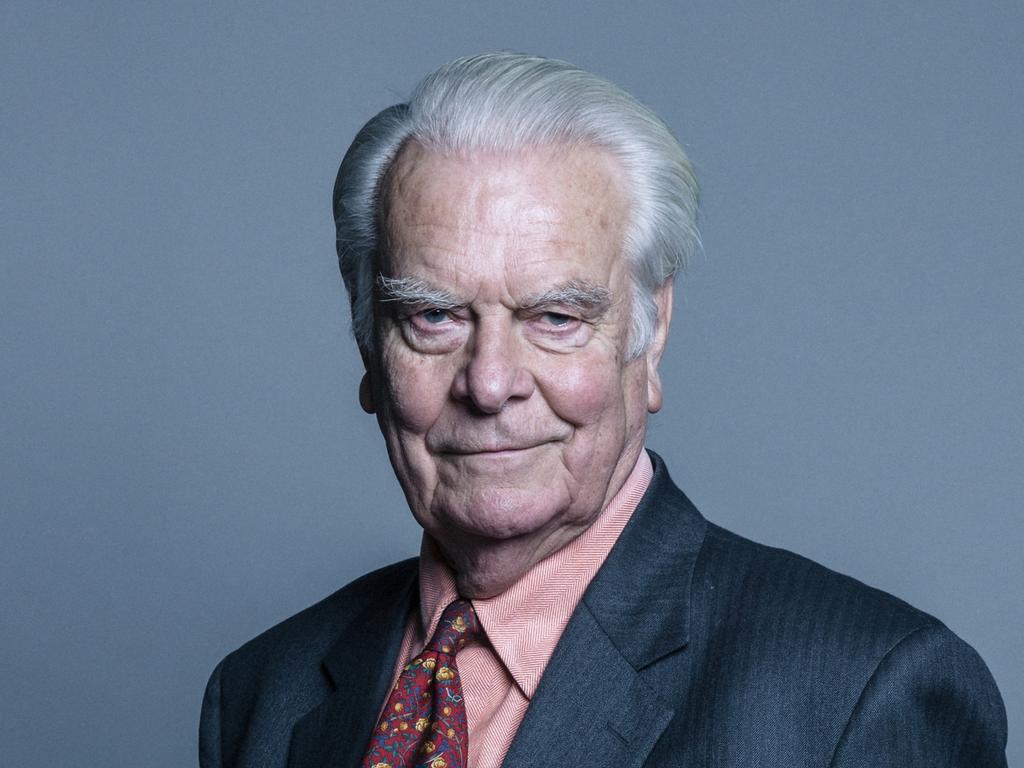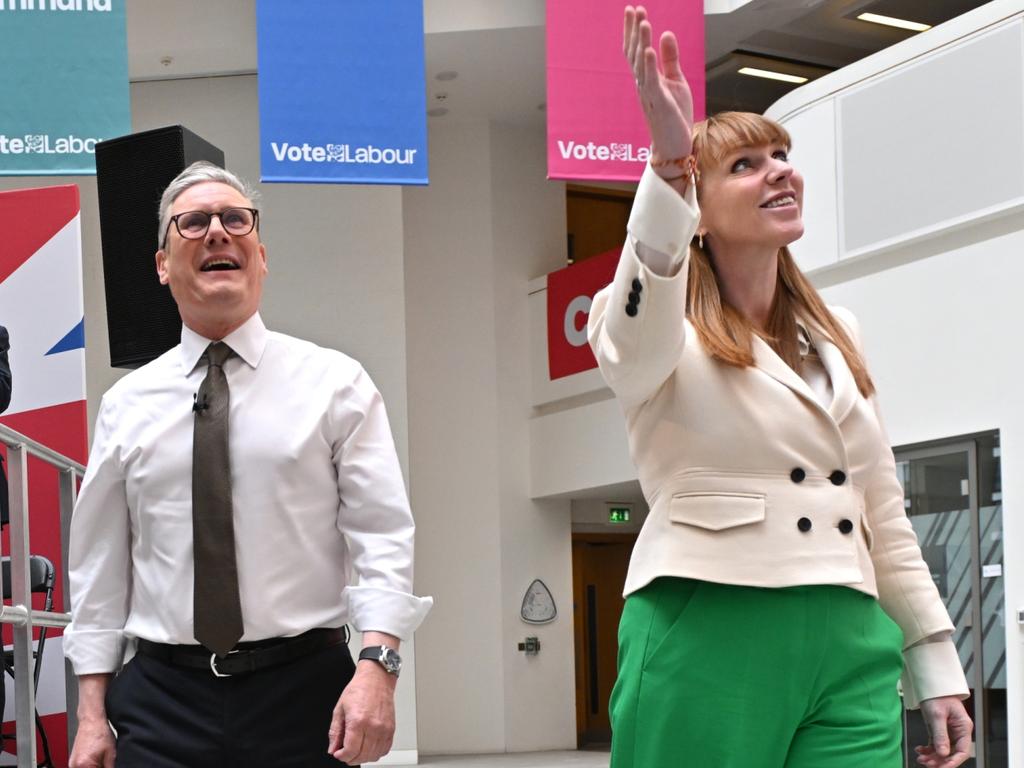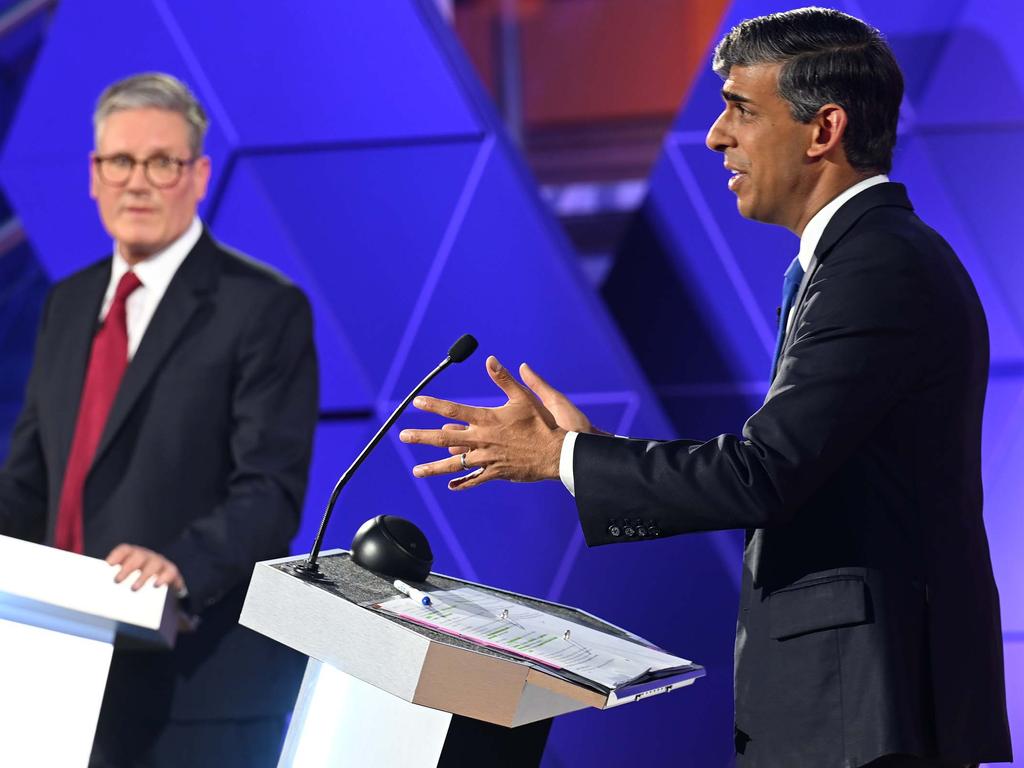Sir Keir Starmer: Britain’s new PM is a man of his people
Don’t be fooled by the title – Sir Keir Starmer’s biographer says he’s a working class Labour man through and through.

It was during the torturous Brexit debates in 2016 when Keir Starmer caught the public eye. Amid the vicious parliamentary mudslinging, claims and counter claims, Starmer’s calm and forensic positions appeared an antidote to the ineffective and extreme Labour leadership of Jeremy Corbyn.
Starmer, with just a year of political experience in Westminster but a knighted career as a barrister and chief public prosecutor, was the Labour Brexit spokesman. His steadiness back then stamped him as a future leader.
Now, eight years on, after bringing the Labour Party out of the political wilderness and repositioning those white-knuckle far left years to a more moderate centrist position, 61-year-old Starmer is poised to become the 59th British prime minister since 1721.
The polls are not wrong. Labour will romp home in this election without a detailed manifesto because the public is utterly fed up with the Conservative Party infighting and disastrous governance. The Tories face an existential crisis even without the swelling support for the other right-wing alternative, Nigel Farage’s Reform UK party.
Starmer has not had to reveal any of his plans – whether he will turn to austerity or bump up taxes to tackle a woeful economy. He hasn’t had to be charming or bring his family on to the hustings. He has been the dull, boring alternative to the Tory chaos. And he will win.
Starmer grew up in a working class family in Oxted, Surrey: his father, Rod, whom Starmer described at his father’s funeral as a “difficult sod”, ran a toolmaking factory. Only when clearing out the house did Starmer discover his father’s neatly composed scrapbook hidden at the back of a cupboard. It contained all his son’s interviews, revealing the enormous pride he felt about his son being made Labour leader. Starmer says his father channelled his emotions into looking after Starmer’s mother, Jo, a nurse suffering a long-term painful arthritic condition, Still’s disease.


When it was suggested in a recent Sky television interview that his father didn’t love him, Starmer replied: “That’s a difficult one … my mum was very, very ill and needed someone in her life who would put her above everything else. My dad did that, the result of which emotional space was more squeezed than what would have been and the relationship was more distant.’’
Starmer’s biographer, a friend and former Labour Party adviser Tom Baldwin, said Starmer’s distant connection with his father is “hugely significant in terms of his drive”.
He told the podcast Tortoise this was “because a lot of it was getting out of a very, very claustrophobic place, growing up in a cramped house, three bedrooms, four kids, three dogs, a disabled mother, one bathroom.”

The family dynamic evolved around keeping his mother alive and as pain free as possible. Starmer would rise early from the bunk bed in the bedroom he shared with his brother Nick, who has learning difficulties, to walk his red setter dog and practise playing the flute. He has maintained the dawn rising habit all his life and often thinks of his mother overcoming her daily struggles.
“Whenever I’m faced with a problem or a challenge,” Starmer has said, “I think of her and walk towards it. Some of the tougher things I have to do just pale into insignificance.”
He would later buy seven acres of farmland for his parents because his mother wanted to care for discarded donkeys.
Unlike his three siblings, Starmer went to Reigate Grammar School, with the fees paid by the local council, and attended a Saturday music school (he can play four instruments). He then studied law at Leeds University. His brother and sisters, Katy and Ana, called him “superboy”.
Baldwin says: “Like a tightly bound spring, he explodes out. He was the first person (in his family) to go to university, to Leeds first class, then to Oxford, and he worked harder than anyone else in Doughty Street Chambers.”
The Labour Party website says Starmer’s entire career has been about securing justice for those who need it.
“From representing people on death row as a human rights lawyer, to working on setting up the Northern Ireland Police Board in the wake of the Good Friday Agreement, to making the law work for victims as chief prosecutor,” it says.
Named after the Scottish trade unionist and founder of the Labour Party, Keir Hardie, Starmer has said: “I would describe myself as a socialist. I describe myself as a progressive.”

Yet a common refrain from political analysts and commentators is that they can’t pinpoint the “real” Keir Starmer, only the man who flips on positions according to political whim. His friends say this is because he has no fixed political ideology but uses a set of personal values to guide his thinking. And he is ruthless in pursuing what he thinks is right.
The one constant that he is obsessed about is football. He is a season ticket-holder at Arsenal, and he still plays five-a-side every Sunday. The “hero’’ he has named in interviews is the footballer Thierry Henry and, when pressed, he mentions his admiration for Nelson Mandela.
In his earliest political exposure at Oxford University, Starmer edited the magazine Socialist Alternative, which promoted Pabloism, characterised as a more palatable alternative to extreme-left Trotskyite philosophy – to the extent that Starmer has found himself labelled a “posh Trot”.
But friends from those years now say Starmer was “the backroom guy” preoccupied with the logistics of getting the leaflets printed.
His stint at the magazine was to be the start of a decades-long career devoted to bureaucratic procedures, honing an obsession with detail, making the paperwork more efficient, and developing a disdain for meetings in his time as a barrister and then chief prosecutor.
Baldwin brutally assesses that his friend Starmer “clearly lacks the core political skills of a successful leader”, adding “he doesn’t orate amazingly well, he can’t sum up in a three-word slogan, he is not that inspiring a TV persona’’, but admiringly stresses, “he seems to be doing very well”.
For a country craving solidity, some staidness is highly welcomed. Disenchanted voters are gravitating to the Labour Party as the least worst option.
Starmer suffered a crisis of confidence and was on the verge of quitting politics after a disastrous Hartlepool by-election in May 2021 at the height of Boris Johnson’s popularity and before the Tories self-immolated.
“I felt like I had been kicked in the guts,” Starmer says. “The result was terrible and I had a moment where I thought we are not going to be able to do this.”
But a 20-point deficit has turned into a 20-point lead, says Baldwin, because “Starmer puts one building block on top of another”.
“It’s boring – but look back, and he has built something.”
Starmer has been given some space for his rollercoaster views because the public is disengaged with the campaign and is distrustful that any promises will survive past this Thursday’s election day. Starmer has switched from claiming not to know what a woman was to saying one of his colleagues was wrong to claim only women have a cervix to now insisting a woman is a biological female.
He has banned his shadow ministers from being on picket lines, but then vows to “work shoulder to shoulder with trade unions to stand up for working people”.
He was besties with Corbyn and then denied the friendship after a major falling out over Labour’s anti-Semitic issues; he has promised to both raise taxation for top-tier workers and have no taxation increases; the same for levies on tech companies.
Most recently his promise of no changes to the charitable status of private schools has been abandoned. He has rowed back on early pledges to nationalise the rail, mail, energy and water services.
The public doesn’t believe Starmer when he insists he wouldn’t seek private medical care if his family needed treatment, and his trustworthy ranking, according to YouGov, is only 27 per cent. (Conservative Prime Minister Rishi Sunak is just 18 per cent, while Boris Johnson’s had plunged to 11 per cent in August 2022 before he was ousted). The collapsing National Health Service is still a protected species for voters.
Yet Starmer will get so many votes off the back of disgruntlement with the Tories, which began with Partygate, where the government was seen to be laughing in the face of the draconian Covid restrictions it imposed on everyone else. Sunak’s misjudgment in leaving D Day commemorations early, and the widening scandal akin to insider trading in which Tory party friends bet on an early election, has led to a fear the country will lurch to a near one-party socialist state.
At his party’s election launch, Starmer claimed he could deal with the troubled debt-riddled economy, but he was light on details.
“If you take nothing else away from today, let it be this: we are pro-business and pro-worker, the party of wealth creation,” he said, adding: “Britain has lost its balance. It is too hard for people to get on. Opportunity is not spread evenly. The toxic idea that economic growth is something handed out by the few to the many. Today we turn the page on that for ever.”
One misconception about Starmer is that the Bridget Jones’s Diary author Helen Fielding based her stiff Mark Darcy lawyer character – played by Colin Firth – on Starmer. But in the Radio Times, Fielding says no, she has never met him.
“They are very similar, though,’’ she says. “He’s so good and decent and intelligent, but so buttoned up. I always want to say: ‘Come on, Keir, loosen your tie, ruffle up your hair.’ He doesn’t think of himself as sexy, but he’s really sexy.”
Starmer likes to compartmentalise his life so that politics doesn’t interfere with family rituals. Friday night is a sacred weekly ritual of sitting down with his wife, Victoria, and their two teenagers, a 16-year-old son, Toby, and a daughter whose name has never been publicly revealed. He calls his children “my boy”, “my girl”, to afford them privacy but acknowledges life in 10 Downing Street will be an upheaval for them at a critical time of their lives. To smooth the way, it appears the children may get a longed-for dog.
As a senior barrister, Starmer met his solicitor wife Victoria (she now works for the NHS) and he questioned her about the thoroughness of a legal report, only to hear her mutter “who the f..k does he think he is” when she was putting down the phone. He took her on a date to a local London pub and proposed three months later. Described as sassy and independent, Victoria is of Polish descent and is an Ashkenazi Jew and Starmer says Jewish heritage is important to his children.
The Starmer family belongs to London’s Liberal Jewish Synagogue in St John’s Wood, near to their home, where they say Kiddush regularly and eat challah every week, the Jewish Chronicle says.
In the days after the October 7 Hamas massacre, Starmer told the London radio station LBC that he and his wife have never known a time of such incredible anxiety. He expressed deep shock at what was happening.
Victoria Starmer said she felt a bit sick, apprehensive and uncomfortable when three pro-Palestine protesters hung a banner outside their home and placed children’s shoes, representing Gaza youngsters, outside their front gate earlier this year.
She has been noticeable in her absence from the campaign trail, even though Labour supporters believe her warmth is an antidote to her husband’s woodenness.
Starmer says his wife was continuing to work and that she was helping “our boy” who was studying for high school exams.
“We took the decision that while I was out and about on the road, we wanted to create the environment where he could study calmly in ordinary circumstances,” he explained.
None of this surprises those close to him, including Baldwin, who says Starmer bridges political life with real life. “He is not like most politicians with grandiose visions. He wants to take the reality, the messiness, the complexity and nuance into Downing Street.’’








To join the conversation, please log in. Don't have an account? Register
Join the conversation, you are commenting as Logout